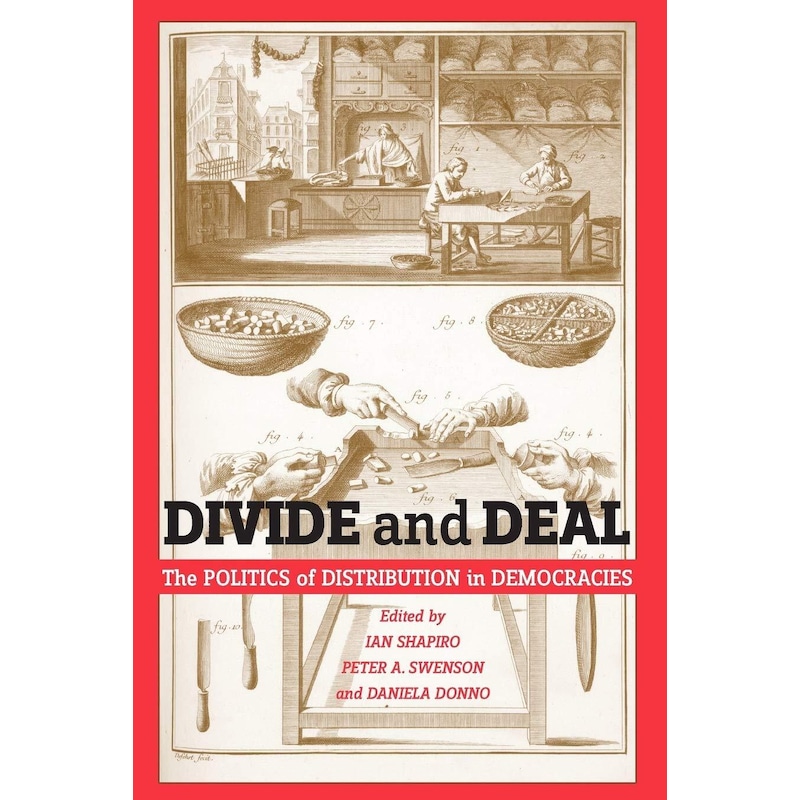



Why are democracies so unequal? Despite the widespread expectation that democracy, via expansion of the franchise, would lead to redistribution in favor of the masses, in reality majorities regularly lose out in democracies. Taking a broad view of inequality as encompassing the distribution of wealth, risk, status, and well-being, this volume explores how institutions, individuals, and coalitions contribute to the often surprising twists and turns of distributive politics. The contributors hail from a range of disciplines and employ an array of methodologies to illuminate the central questions of democratic distributive politics: What explains the variety of welfare state systems, and what are their prospects for survival and change? How do religious beliefs influence peoples demand for redistribution? When does redistributive politics reflect public opinion? How can different and seemingly opposed groups successfully coalesce to push through policy changes that produce new winners and losers? The authors identify a variety of psychological and institutional factors that influence distributive outcomes. Taken together, the chapters highlight a common theme: politics matters. In seeking to understand the often puzzling contours of distribution and redistribution, we cannot ignore the processes of competition, bargaining, building, and destroying the political alliances that serve as bridges between individual preferences, institutions, and policy outcomes.
P>Review In this astute and lively book, Michele Barrett takes the reader on a memorable and informed trip through the highs and lows of twentieth-century culture and its analysis. Imagination in Theory explores the dynamism of the century-long association of literature and theory, and provides one of the best arguments for the productive energy of that alliance. -Cora Kaplan, About the Author: Ian Shapiro is Sterling Professor of Political Science at Yale University, where he also serves as Henry R. Luce Director of the Yale Center for International and Area Studies. He is the editor or author of numerous books, most recently Political Contingency (NYU Press) and Rethinking Political Institutions (NYU Press).Peter Swenson is Saden Professor of Political Science at Yale University.Daniela Donno is Assistant Professor of Political Science at the University of Pittsburgh.
We ship Australia-wide, including all major cities such as Sydney, Melbourne, Brisbane, Perth, Adelaide, Canberra, Newcastle, and the Gold Coast.
Same-Day Dispatch:
Orders placed before 12pm (AEST) are guaranteed to ship the same business day. Orders placed up until 1pm often still ship same day, but this is not guaranteed.
Estimated Delivery Timeframe:
• Metro areas in major cities like Melbourne, Sydney, Brisbane, and Canberra typically receive their orders within 1–2 business days.
• Regional and rural areas, or deliveries to states such as WA, SA, NT, and TAS, may take up to 10 business days, depending on location and courier performance.
Delivery times may vary slightly during peak periods, but we always aim to get your order to you as quickly as possible.
We offer a 30-day satisfaction guarantee on all purchases.
Returns:
Returns are accepted within 30 days of receiving your item. Items must be returned in their original packaging and in the same condition as when they were received. Change-of-mind returns are accepted only for items that are new and sealed. Items that are used or no longer in their original condition may not be eligible for a full refund.
Defective Items:
If your item arrives damaged or faulty, please contact us as soon as possible, and we’ll arrange a return or replacement where applicable.
Warranty:
We do not provide warranty coverage beyond the initial 30-day period. For any issues arising after this time, warranty claims must be made directly with the manufacturer in accordance with their terms.
Estimated Delivery Time Frame: 5 - 10 business days